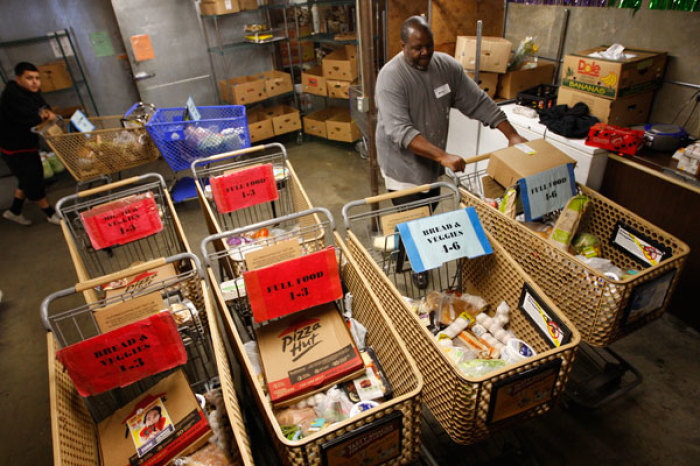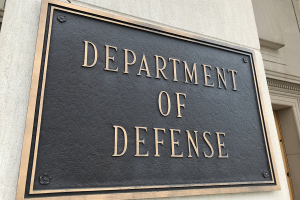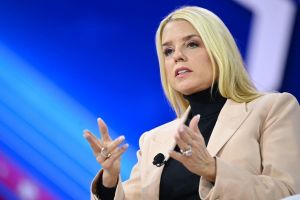Watch 6 Presidential Candidates Answer Christian Leaders' Question About Poverty (Video)

A coalition of Christian leaders devoted to helping end poverty has released a series of videos featuring six 2016 presidential candidates. Each candidate explained the approach that he or she would take to solve poverty and hunger issues in the United States and across the globe if they were elected president.
As over 45 million Americans are living below the poverty level, The Circle of Protection, a coalition representing a diverse group of over 65 Christian leaders and organizations headed by Bread For The World, Sojourners and the National Association of Evangelicals, challenged each presidential candidate on the day they announced their candidacy to provide a video explaining their plans to end poverty.
"This is for us a deeply moral issue and first of all, it is a biblical issue," Sojourners founder Jim Wallis said during a Tuesday press call. "What our scripture tells us is that a nation's integrity, its righteousness is most determined by how it treats its poorest and most vulnerable, and leaders in particular are asked by the prophets to treat the needy with highest priority, not the last in line but the first."
The coalition released the first six candidate response videos it received, which includes videos from Sen. Ted Cruz, R- Texas, former Hewlett Packard CEO Carly Fiorina, Former Arkansas Gov. Mike Huckabee, Sen. Bernie Sanders, D-Vt., Former Florida Gov. Jeb Bush, and retired neurosurgeon Ben Carson.
In the near future, the coalition will release at least five more videos from candidates whom have all pledged to submit videos, including former Secretary of State Hillary Clinton, former Maryland Gov. Martin O'Malley, Sen. Marco Rubio, R-Fla., Sen. Rand Paul, R-Ky., and Sen. Lindsey Graham, R- S.C.
In 2012, presidential candidates Barack Obama and Mitt Romney made similar videos for Circle of Protection.
"For too long, our leaders have been silent on the issue of poverty. The people in poverty are close to the heart of God. Some participants lamented that substantive dialogue on this debate occurs so rarely in electoral campaigns that we vowed to change that," Galen Carey vice president of government relations for the National Association of Evangelicals, said. "We are looking for well conceived initiatives that will actually be implemented so that millions of people will rise out of poverty at home and abroad."
Ted Cruz
In his video response, Cruz was adamant that ending poverty and hunger will not come through big federal government programs but rather through the government supporting and assisting private charitable organizations, non-profits and Christian ministries in order to help those organizations help those in need.
Cruz argued that it has been proven that using the federal government to fight poverty does not end poverty but rather makes people dependent upon the government instead of being dependent upon their own abilities and skills.
"Since President Johnson declared war on poverty in 1964, U.S. taxpayers have spent more that $22 trillion on government anti-poverty programs. That is more than three times the cost of all U.S. wars since the American revolution but little progress has been made," Cruz explained. "If I am elected president of the United States, I will support policies that strengthen private charitable organizations, which have proven to be dramatically more effective in helping people escape poverty than any government program."
Bernie Sanders
Sanders, the only Democratic candidate to have his video response released thus far, attacked Republicans for not caring enough about the poverty issue and for caring more about giving tax breaks to the wealthy and wanting to cut the health insurance of over 27 million Americans.
Sanders said he would approach the poverty issue by creating initiatives like raising the minimum wage to $15 an hour, developing programs to rebuild America's infrastructure, which he says would create some 13 million jobs. Also, he stressed the importance of equal pay for women, and affordable college education for all.
"The fact of the matter is that we need to address poverty in America in a very bold and forceful way," Sanders said. "It is not acceptable to me, nor should it be acceptable to any American, that we have the highest rate of childhood poverty of any major country on earth and that we have millions of families that are working longer hours for low wages."
Ben Carson
Carson's response focused on how Americans are capable of ending global poverty. He explained how American companies have gone to third-world countries like Cameroon and taught impoverished inhabitants how to best utilize their fertile lands to grow crops and make their own livings.
In return, Carson says the American companies have profited off of the work they have done, while the Cameroonian residents have "record crops" and are creating Jobs.
"We need to be thinking about that in all of the countries of the world where poverty and hunger exist where we can export some of our knowledge where our companies win and where those countries win and we cultivate friendship rather than animosity around the world," Carson said. "That is what a Carson administration would do."
Carly Fiorina
Fiorina's response was the shortest of all the submitted video responses so far and did not touch on what exactly her approach would be in ending poverty. Her response simply stated how everyone needs to be given a chance to use their god-given abilities to escape poverty.
"Indeed, I think the highest calling on leadership is to unlock the potential of others and as a nation, we need to be sure that everyone's life is filled with possibilities," Fiorina said. "We know that opportunity is a big part of someone having the chance to use their god-given gifts but while opportunity may not exist for all, we need to make sure that everyone is given the chance."
Mike Huckabee
Huckabee touted his career as Arkansas governor, where he cut taxes in welfare, balanced the state's budget every year for 10 years and raised family incomes by 50 percent while doing so.
"One thing that has to happen in America is moving the power away from Washington, where people are so disconnected from the way that so many ordinary Americans live," Huckabee stated. "Instead of fighting over the minimum wage, I am going to focus on solutions to help every American earn his or her maximum wage. I'll protect social security and medicare. Washington has done enough lying and stealing. I'll never rob seniors of what our government promised them and even forced them to pay for."
Jeb Bush
Bush's video touted his work as Florida governor, where he instituted the first voucher program that gave low-income children an opportunity to go to private schools. Additionally, he said that the most vulnerable in society benefit from initiatives like programs for the mentally disabled, fixing the higher education system, changing the economy and by implementing conservative principles.
"The barriers right now on people rising up is the great challenge of our time. So many people could do so much better if we fixed a few things," Bush said. "My core beliefs start with the premise that the most vulnerable in our society should be in the front of the line and not the back. As governor, I had the chance to act on that core belief."





























